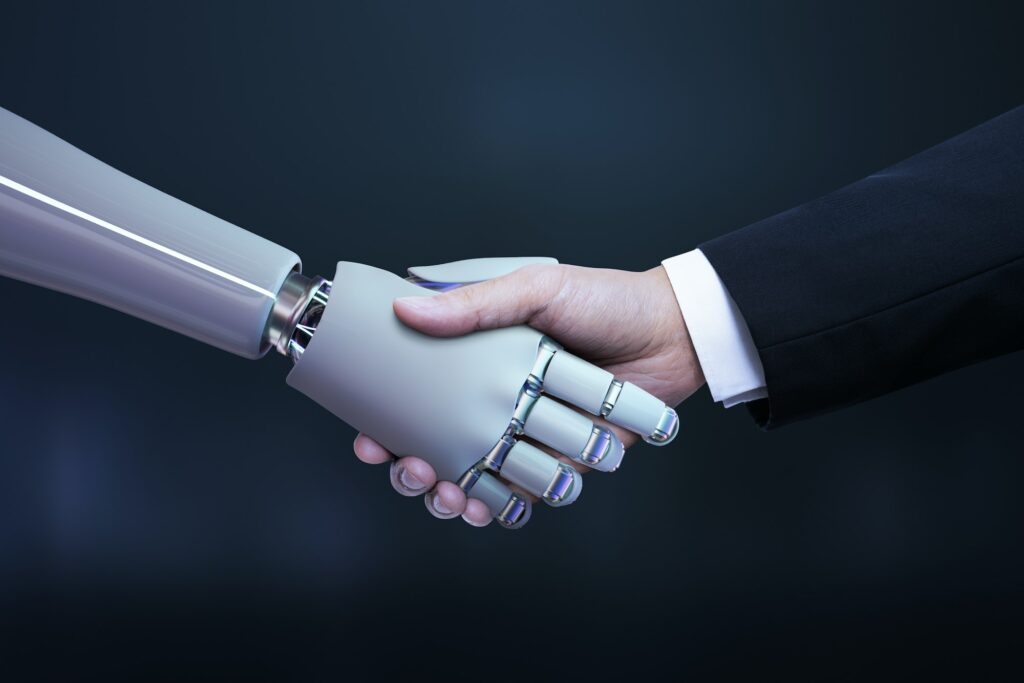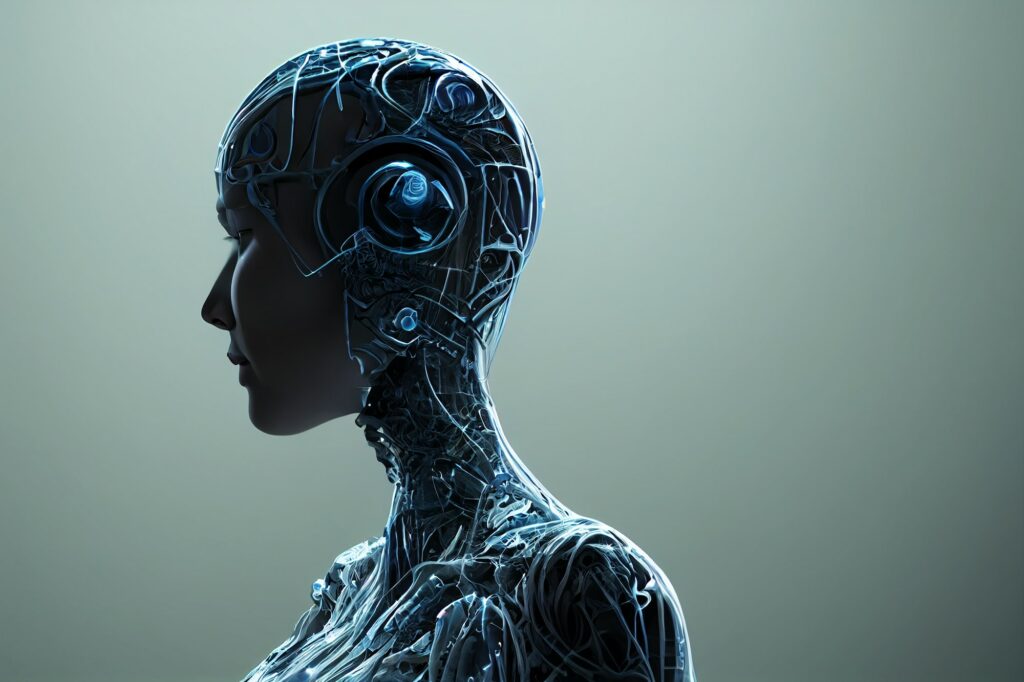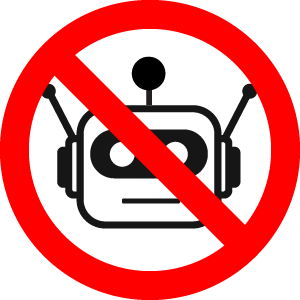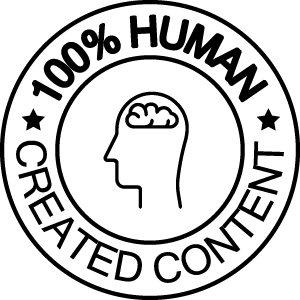Unless you’ve been living under a rock for the past year, you know that ChatGPT and similar AI language models have taken the internet by storm.
Before anyone had a chance to respond, the web was inundated with artificial intelligence-generated content that made it nearly indistinguishable from anything crafted by human hands and this AI is ruining content creation.
College students at even the most acclaimed universities no longer needed to be up for hours into the night attempting to complete essays, coding assignments, or book reviews. With a few sentences inputted into an AI language model like ChatGPT, they now can now generate infinite content to choose from.

The age of having to study, actually reading the books assigned, and putting any amount of effort into learning your way through school is over. The new age of AI is here. While Universities are heavily investing in research to combat the implementation of AI, there is another area of the internet that is significantly affected by the AI epidemic: content creators.
Once upon a time, the creation of blogs, artwork, and content on any topic was reserved for those with genuine expertise and mastery. However, the situation has changed drastically. Now, literally, anyone with a computer and internet connection can become a self-proclaimed authority on any subject. All you need to do is feed it to an AI —
This means that the recent article you read about actual rocket science, a subject so complex it takes even the most distinguished and clever people decades to understand – could have been written by an 18-year-old High School student who just happens to be good at AI prompting.
The transformation is both staggering and unsettling.
I love online content. I love reading blogs, and articles. I always read the newspapers and stay up to date on current events. But in recent times I have found myself becoming more and more paranoid about the content I’m reading: how do I know if this was actually written by a human? A real person with true experiences as complex as mine, with opinions and takes that aren’t just scraped off of the internet?
The reality is: I cannot know. It is ruining content consumption for me, and it is ruining content consumption for you too, even if you don’t realize it yet. This article will analyze the incredible drawbacks of artificial intelligence in content creation, and how it is stripping people of their livelihoods while ruining content consumption for the average user.

AI Is Ruining Content Creaton & Consumption
The first thing to understand before we analyze the issue of actual content creation is the content consumption issue that we are facing. With the wildly increasing prevalence of AI-generated content, it is becoming incredibly difficult to accurately identify what was created by a human and what was just generated by a string of lifeless code from the ether.
As a result, readers have a high chance of consuming inaccurate or misleading information from a bot that merely scrapes the internet for facts without any real understanding of the topic. Any sixteen-year-old with a WordPress account and a laptop can pretend to be an expert on rocket science simply by having AI generate entire articles about whichever subject they can think of.
However, there is no guarantee that the AI is correct. In fact, a lot of the time it is incredibly incorrect. It is important to keep in mind that ChatGPT isn’t an all-knowing deity who pulls knowledge out of thin air – it scrapes the internet and uses whatever it finds to create the illusion of knowledge. To put it simply: it takes the billions of sentences it finds online and re-orders them in a way that it assumes is fairly correct.
That does not mean it is.
With the increasing prevalence of AI-generated content, many are unable to accurately identify what is created by a human and what is generated by an algorithm. As a result, readers may be consuming inaccurate or misleading information that was created without any real understanding of the topic.
This has led to a high decrease in the quality and trustworthiness of information consumed online. I mean, who would you rather trust? A dead robot who just regurgitates sentences that could have been written by anyone, or a true professional on a certain topic?
Content Creators are Losing Their Jobs to AI
One of the many “pros” and arguments for the “amazing” invention of AI language models such as ChatGPT has been that it makes life easier for content creators, but that is unfortunately an incredibly shortsighted and untrue observation.
Yes, ChatGPT can create entire blog posts in a matter of a few seconds – and right now any creator might praise its existence because it can potentially remove hours of work from the day.
What will happen to most creators once people discover they don’t have to be skilled writers or experts on a topic anymore in order to create content? We’re currently witnessing drastic changes across large content-producing websites: replacing their human authors with AI.
Buzzfeed, one of the biggest news and entertainment websites on the planet, just laid of 12% of their content creators last December (2022) to be replaced by AI. Imagine spending your entire life working towards getting your dream job as a content creator at a firm like Buzzfeed, just to lose it all to a soulless robot who cannot even come close to reaching the level of quality a human can.
Creators are losing their livelihoods, and now you can be pretty sure that if you read a Buzzfeed article, it was probably written by ChatGPT. Editors are consistently making this deal with the devil for profit.

For content creators, regardless of skill level, there is no guarantee that editors won’t opt for AI-generated garbage over your hard work. This means if you’re a creator, you could be the next victim to fall into this unyielding grinder which produces more profit from churning out low quality articles than investing in human talent.
Tragic.
AI Is Ruining Content – We Can No Longer Know What is Real
The reality is that more and more articles, even those we think may not be, are being written by AI. It’s a plague that is spreading across the internet at an alarming rate and is truly harmful not only to our minds but our knowledge of the internet and reality. We cannot always believe the articles that AI produces.
A study by Bowdoin College learned that AI content simply isn’t accurate enough to be a trustworthy source. After analyzing a plethora of AI-generated content, we learn that this dead husk of code simply lacks reason. Which makes sense. It’s a robot. It cannot comprehend the content it is regurgitating the same way a human does, because it lacks basic emotional intelligence and nuance.

The more prevalent these AI-generated articles are, the more paranoid we’re going to be. We’ll be constantly living in an online content version of the WestWorld effect (what is real, what is not?). Once that starts hitting the average consumer, the value of content is going to shift significantly.
No matter how much money you save as an editor, or how “real” the article looks for a consumer – human-generated content will always have a much higher value than that of an AI. That is why we have created the NO-AI-STATEMENT so that when you as a consumer read a piece of content and see the icon, you can feel safe that what you are reading is the result of real human expertise.
There is true value in human-generated content, and besides the moral implications of AI – it feels good to know that when you produce something, everyone knows that you produced it. No creator should ever have to be accused of being a robot.
AI is Unethical and Morally Reprehensible
When we consider AI-generated content, we must also consider the moral dilemma it presents. There is a significant issue with accountability. If an article produced by an artificial language model contains errors or malicious intent, who is responsible? Who should be held accountable for information created by a string of code that has no life?
Chat-GPT simply scrapes the internet and will be inherently biased based on its findings. This means that the harm that it can cause is, first unknown, but analyzing previous experiments shows that a robot that can only produce what it is taught, is not immune to maliciousness.
This transition leads to another concern: censorship. In order to stop the influx of hate speech concerning topics that can potentially cause harm, OpenAI has been forced to implement filters and an overall flux of censorship on its algorithms.
What this means, is that the content you consume not only lacks basic emotional intelligence and is limited to the copy-pasted words of random information on the internet but it has also been censored.
Why AI Is Bad For Content Creation: It is tearing it apart

The reality might be dim, but it is true: AI-generated content does a significant amount of damage to both content creators and consumers. It spread misinformation, introduces bias, and lowers the overall quality of content.
Worst of all, people are losing their jobs and livelihoods in droves. Content creators, copywriters, and journalists are all the victims of the estimated 400 million people that will lose their job because of AI in the coming years.
It’s a trend we cannot stop, but we can stay knowledgeable. Be aware of the truth, and take the steps you can to make sure that you’re ethically producing and consuming content. We live in a world that is going to be significantly affected by AI to the point where it might as well spell out the end of mankind, so the least we can do is stay in the know. Be the change, say no to AI.
Without a doubt, we can promise you:
